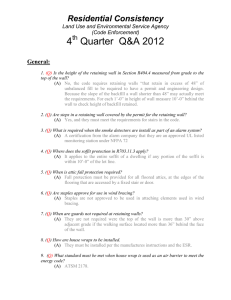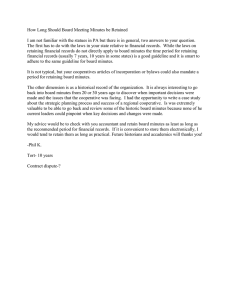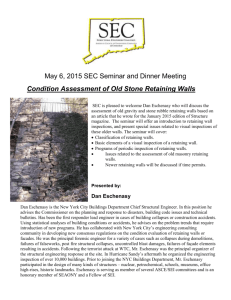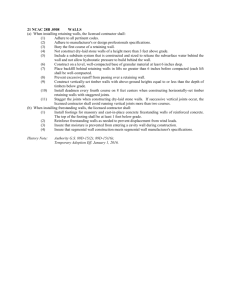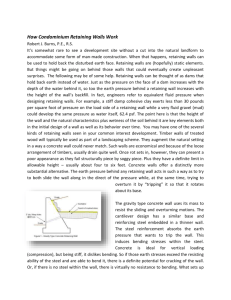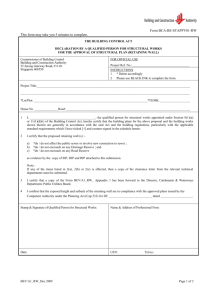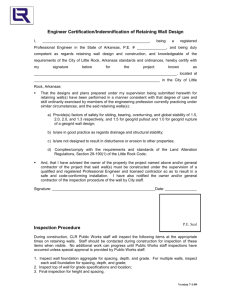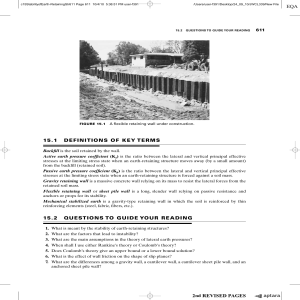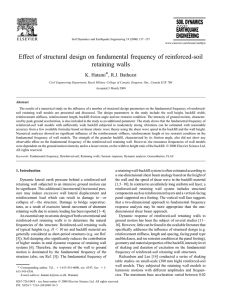SEEPAGE BEHIND RETAINING WALLS
advertisement
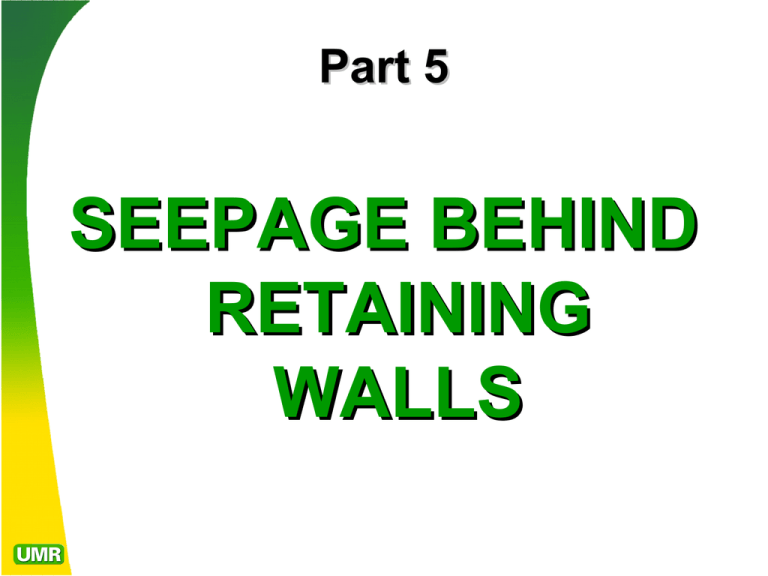
Part 5 SEEPAGE BEHIND RETAINING WALLS This excerpt from the 1946 Concrete Handbook provides the standard subdrain detail along a buried foundation wall. Note weather sealing of the concrete wall, pervious backfill around a collector pipe, and clay cap over the subdrain trench. Up through the 1950s Vitrified Clay Pipe (VCP) was laid with gaps behind the base of retaining walls to provide an open conduit for collected moisture in the backfill. Sometimes these pipes were wrapped in burlap to provide a crude filter membrane Pieces of 3-inch diameter Vitrified Clay Pipe (VCP) used in a perimeter subdrain around the basement of an old house. Retaining walls are usually designed assuming longterm drained conditions of their backfill Simple submergence of most compacted soils effectively doubles their unit loads pushing against the wall’s stem Retaining Wall Drainage This detail comes from a 1934 publication, showing concrete drain tile pipe should be placed at the base of the basement wall footing, not the base of the stem wall. Note tar joint between floor slab and stem wall. Subdrainage behind walls allows their design loads to be reduced by 42% to as much as 184% ! Seepage drawdown is most pronounced in more pervious materials, like sands and gravels (shown at right) The direction of seepage actually influences seepage pressures developed against the back of retaining walls. Terzaghi (1943) demonstrated that vertically-inclined seepage eliminates transient pore pressures acting against the retaining wall, reducing the load acting on such walls. Note uplift acting upon the active pressure wedge The active pressure zone may be partially saturated, even with subdrainage. This creates an additional load on the wall and reduces base friction by 10% to 30%. WEEPHOLES Weep holes at the base of retaining walls are intended to bleed off excess moisture that collects behind the wall. In the old days the drain might simply be a burlap bag filled with pea gravel. Weep holes fashioned from terra cota pipe draining two failed portions of an old cyclopean masonry rock retaining wall in Cincinnati. Detail shown at upper right. These two zones likely transmitted more subsurafec seepage than the adjacent zones. Paucity of subdrainage drainage is the second most common mode of retaining walls failure (the most common being dry rot). Photo of a concrete-lined flood control channel showing seepage draining from weep holes following a flow event Drainage behind retaining walls has gradually evolved; from a 12-inch thick layer of drain rock behind the wall to the system of prefabricated drainage membranes available today On some occasions coarse concrete rubble is used as drainage material behind a retaining wall, as shown at left. Without filter protection, fine grained soils will gradually infiltrate these blocks, clogging the subdrain and promoting settlement of the backfill and plugging the subdrain.
